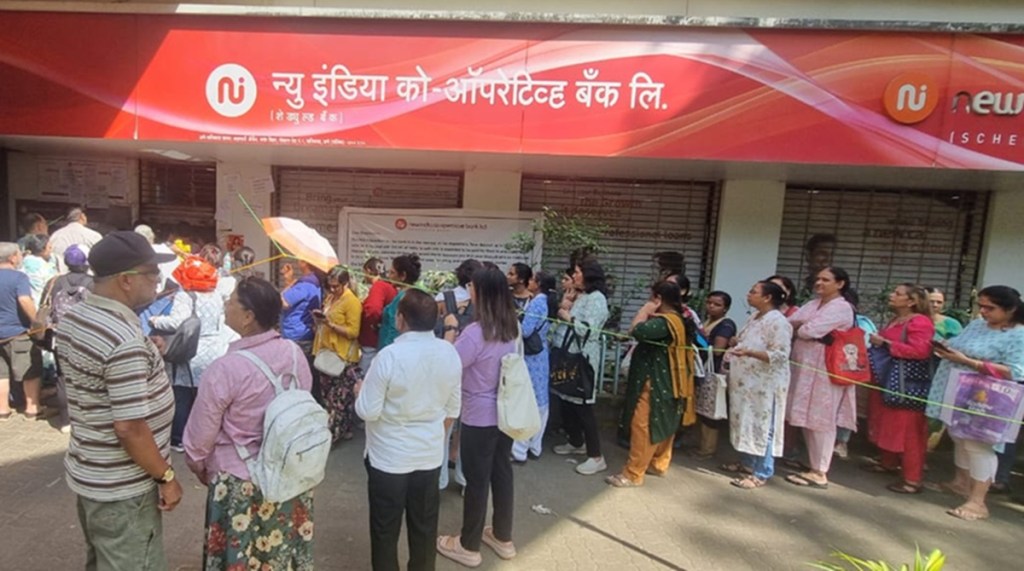Customers anxiously lined up in queues, senior citizens waiting with bank documents seeking clarity on their savings, some waiting with their coupons distributed by the Bank officials. That’s the current scene outside of the Mumbai-based New India Co-operative Bank today, a day after the Reserve Bank of India (RBI) banned the Bank from issuing fresh new loans and or allowing withdrawals of deposits. The restrictions came into force from the close of business on Thursday and would remain in force for a period of six months and are subject to review. The RBI said that the restrictions are imposed due to supervisory concerns and the lender’s liquidity position.
While speaking to ANI, Seema Waghmare, one of the bank’s customers, said, “We deposited money just yesterday, but no one warned us about this. Now, they say we’ll get our money in three months, but we have EMIs and bills to pay. How are we supposed to manage?”
Another customer said, “We are clueless as no information is being provided by the bank. I got the information that the bank is allowing customers to operate lockers but we have been standing for hours and nothing is happening.”
Another customer, Varsha said there is a wedding at home next month, and that she had a leg operation, still she has to stand in the queue for hours. “I have to take out my jewelry from my locker… I have Rs 2 lakh FD in the bank, but if I can’t break it now, I will have to mortgage the jewelry… I have Rs 10k to 15k in my savings account… but I worry about it a lot,” she said.
What happened and why?
The RBI, on Thursday evening, issued a notice to New India Co-operative Bank imposing restrictions prohibiting the Bank from issuing new loans or allowing withdrawals of deposits.
In the notice, the central bank said, “…as from the close of business on February 13, 2025, the bank shall not, without prior approval of RBI in writing, grant or renew any loans and advances, make any investment, incur any liability including borrowing of funds and acceptance of fresh deposits, disburse or agree to disburse any payment whether in discharge of its liabilities and obligations or otherwise, enter into any compromise or arrangement and sell, transfer or otherwise dispose of any of its properties or assets except as notified in the RBI Direction…”
The restrictions, for now, are in force for a period of six months and are subject to review.
The RBI said that these directions are necessitated due to supervisory concerns emanating from the recent material developments in the bank, and to protect the interest of depositors of the bank.
The RBI further added, “The eligible depositors would be entitled to receive deposit insurance claim amount of their deposits up to a monetary ceiling of Rs 5,00,000 in the same capacity and in the same right, from the Deposit Insurance and Credit Guarantee Corporation (DICGC), as applicable under the provisions of the DICGC Act, 1961, based on submission of willingness by the depositors concerned and after due verification. The depositors may contact the bank officials for further information.”
Veteran banker Keki Mistry, who is on the board of some of the leading financial institutions, including HDFC Bank, said, “History tells us that depositors in Indian banks do not end up suffering. The Reserve Bank of India’s supervisory framework is very strong with regulations geared towards protecting the depositors. In cases where there are banking failures the future course has either been self-correction or in extreme cases, a buy out by a stronger entity.”
